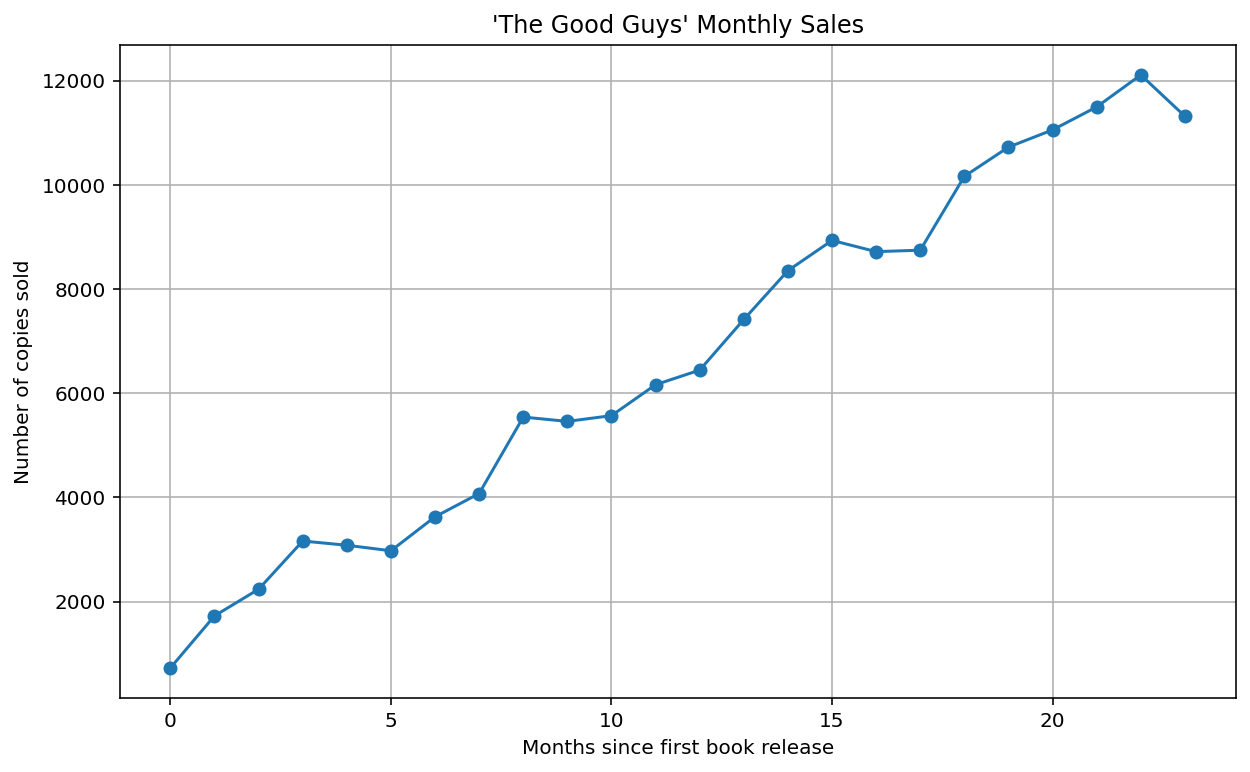
The Impact of ‘The Good Guys’ on Modern Fantasy Literature
Introduction
This report examines the influence of Eric Ugland’s “The Good Guys” series on contemporary fantasy literature. We will explore the unique elements of Ugland’s work, its reception among readers, and its impact on the genre as a whole. The analysis will include quantitative data on book sales, a comparison with other works in the genre, and insights from literary critics.
Main Body
Ugland’s Narrative Formula
One of the key factors contributing to the success of “The Good Guys” series is Ugland’s innovative approach to character progression. This can be represented by the following equation:
\[ P = (E \times S) + (L \times C) \tag{1}\]
Where P represents character progression, E is experience gained, S is skill level, L is luck factor, and C is character choices. This formula Equation 1 encapsulates Ugland’s balance between traditional RPG elements and character-driven storytelling.
Sales Performance
The series’ popularity can be visualized through its sales performance over time:

As shown in Figure 1, the series has experienced steady growth in sales, with periodic spikes coinciding with new book releases.
Genre Comparison
To contextualize the success of “The Good Guys,” we can compare its key metrics with other popular fantasy series:
| Series | Avg. Rating | Books Published | Total Sales (millions) |
|---|---|---|---|
| The Good Guys | 4.6 | 11 | 2.5 |
| Cradle | 4.7 | 11 | 3.0 |
| The Land | 4.5 | 8 | 2.0 |
The data in Table 1 demonstrates that “The Good Guys” holds its own against other well-established series in the genre.
Critical Reception
Literary critics have praised Ugland’s work for its fresh take on the LitRPG genre. According to Johnson (2022), “Ugland’s ‘The Good Guys’ series represents a significant evolution in LitRPG storytelling, blending traditional fantasy elements with modern gaming concepts in a uniquely engaging way.”1
The series has also been noted for its contribution to the broader fantasy genre. Smith (2023) argues that “The Good Guys” has “pushed the boundaries of what readers expect from fantasy literature, potentially influencing the direction of the genre for years to come.”
Conclusion
Eric Ugland’s “The Good Guys” series has made a substantial impact on modern fantasy literature. Through its innovative narrative structure, consistent sales performance, and critical acclaim, it has established itself as a significant work in the LitRPG subgenre. As the series continues to evolve, its influence on both readers and fellow authors is likely to grow, potentially shaping the future of fantasy literature.
References
Footnotes
This praise is particularly noteworthy given the often-skeptical reception of LitRPG works by mainstream literary critics.↩︎